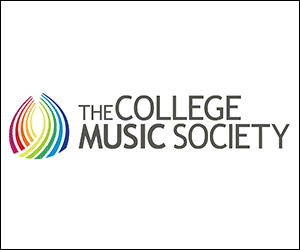Dear Squeak and Blat,
There are so many new acronyms and names for social computing tools these days it's a challenge for even the best musicologist or theorist to sort out: tweet, friend-me, blogs, pods, walls, and more! Of all of these new terms the one that interests me the most is something my students call "RSS feeds." RSS could stand for "Recycling Schubert Songs" for all I know about them! My students say that its a great way to organize just the things on the Web that I'm interested in reading every day, like creating my own newspaper if I understand what they tell me. Can you shed some light on RSS'ing for this music professor? I'm especially interested in ways I can use this for my music interests. I teach music history and styles, perform on the piano and keyboard, and conduct our early music chamber group. Thanks for any enlightenment!
Dr. Donald D'Base
McLuhan College of Media, Message, and Music
Answer:
Dr. D'Base. What an excellent question. We can reassure you that RSS and Schubert have never met. For an authoritative response to your question we've invited Dr. William Bauer at Case Western Reserve. He recently gave a presentation on just this very topic at the CMS conference in Minneapolis. His primary area is music education, but I'm sure he can offer some guidance on "RSS Feeds" that would benefit not only your interests but those of the CMS membership in general.
Bauer's Response:
Thanks, Squeak and Blat, for the chance to chime in on RSS feeds. There is no doubt that we are bombarded by a great deal of information these days and it can be challenging to stay on top of it all. Fortunately, RSS is a technology that can help us to do just that! RSS stands for "Really Simple Syndication." It allows you to "subscribe" to online resources and be notified when something new is available. In this case, a subscription is free and is just the term used when describing the connections this technology allows. Go to http://tinyurl.com/squeakblat1 in your favorite web browser if you'd like to view a YouTube video that further explains RSS in a clever manner.
Through RSS you can keep track of blogs, news sites, podcasts, wikis, and other online resources. To get started you need to have a means of establishing and monitoring your RSS subscriptions. I suggest you use an online aggregator that collects and organizes RSS "feeds" called Reader, a service provided for free by Google. To access it go to http://reader.google.com and sign up for a free account or sign in with your existing Google username and password. Once you've logged in, click the "Add a subscription" button found in the upper left part of your browser window and enter the URL (web address) of the resource you'd like to add to your subscriptions. A video that will show you how to do this and work with other features of Reader can be found at http://tinyurl.com/squeakblat2.
So, where do you find items to add to your Reader? As you are browsing the web, look for the universal "feed-icon". It will indicate that an RSS feed is available. In some web browsers (for example, Safari or Firefox) an icon indicating there is an RSS feed may be displayed in the right side of the address field of the browser, or an icon in the toolbar may highlight indicating a feed is available (MS Internet Explorer, for example). If this is a resource to which you'd like to subscribe, copy its URL from your web browser, open another browser window and navigate to Google Reader, and then paste the URL into Reader's "Add a subscription" area.
You might also like to look at a web site I created for my presentation at the 2010 CMS/ATMI conference. It can be found at http://billbauer.net/presentations/atmi2010/. Here you'll find explanations of blogs, podcasts, social bookmarking, wikis, and more. Examples of each of these online resources are provided, along with links to search engines that can be used to find additional items of interest. Explore these to find things that you'd like to add to your Google Reader RSS service.
RSS is an almost magical technology that allows you to connect with people and resources from all over the world. It can save you time by notifying you of new information in a single place – your Google Reader. RSS plus Google Reader can become a form of informal professional development that you engage in on a daily basis. It is a way to stay abreast of your field and still have time for the rest of your life. Have fun!
Thanks, Bill. We enjoyed your presentation in Minneapolis and your contribution here on RSS feeds. Those videos were fun to watch. Dr. D'Base, we'd add to Bill's response that you can manage your RSS feeds in many places besides Google Reader and if you have a Reader account you can read your feeds without going to the Google Reader site. Many e-mail clients and web browsers let you manage your own subscriptions to RSS feeds. On the Apple iPad Squeak first used the "FeedlerRSS" app (available for iPhone or iPad) and now the "Pulse News" app (available for iphone, iPad, or Android) for tracking and reading his RSS feeds. Both of these will use your Google Reader RSS aggregate list to know what feeds to pull in at any given point in time. Time for you to check out your favorite websites and see if they have the RSS feature active for you to use!
Squeak and Blat



